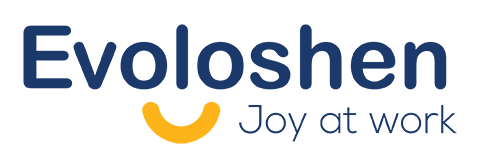 How do you feel about your work? Do you have a good balance in life? Or do you often feel overwhelmed and stressed? Be honest.
How do you feel about your work? Do you have a good balance in life? Or do you often feel overwhelmed and stressed? Be honest.
Most people I meet and talk to in the business world are often in a constant state of overwhelm and stress.
I first saw this trend grow in the early 2000’s when the dotcom bubble burst and companies were laying off many people. The employees left had to pick up the slack of two or three positions while there was a “hope” of recruiting new people soon.
It became “normal” to have those extra duties and many positions were never replaced because leaders saw that the teams could “handle” it.
But then came a big wave of burn out. This cycle had continued over the decades.
The sad thing is that this stress and overwhelm is now prevalent with children and teens. There is much tied to social media and having too much information at our fingertips. But can it be that they are following behaviours that are being role-modelled for them too? Something to think about!
In 2020, the pandemic caused a huge amount of stress globally. There were several key changes in the business world:
- Digitalization happened in roughly six weeks versus the estimated three years it was supposed to take.
- We got insights into people’s home life through video meetings which made us connect more and humanize the workplace—everyone had a life outside of work that we got glimpses of whether intentional or by accident.
- Trust levels increased as leaders realized their teams could be and were productive by working from home. Communication was vital to keep people calm during those early months. Leaders needed more compassion.
- At the same time, people were prioritizing their lives. Problems of issues they were tolerating, whether at home or work, became very evident. They started making changes.
- As the turmoil of the pandemic settled down, we were able to talk more openly about health and well-being, particularly mental health.
If a company had a great culture, it was the glue that people could anchor in during very chaotic times and have a sense of stability.
Toxic cultures became even more prevalent, and employees didn’t want to tolerate those environments any longer.
Quit quitting became a trend, although disengagement has always been around. Only now it was even more obvious.
Some of the latest research[i] [ii] around stress is quite alarming:
- 44% of the global workforce is dealing with work related stress according to Gallup
- 94% or more than 9 in 10 workers have chronic stress at work
- Workplace stress affects women (54%) more than men (47%)
- It affects workers younger than 40 years old the most at 58%
- 99% of workers say workplace stress affects their mental well-being
- 68% of employees feel their employers are not doing enough to support mental well-being
- 60% of employees cite that workplace stress factors heavily into decisions to seek new jobs
- Financial concerns and work are the leading causes of stress for 76% of employees
- Businesses lose an average of 11 days of productivity per employee annually due to stress-related absenteeism
- A reduction in workplace stress can increase sales by 37%, productivity by 31%, and task accuracy by 19%
So in 2024, where do we go now?
The world is in huge turmoil if you watch the news closely. And there are also communities growing that want to create a different world where peace prevails. You will never hear about this in the news.
In addition, the advent of AI is shifting things tremendously in the workplace.
Once again, we have a trend that will impact most people and companies globally. It can be viewed as a negative or positive trend depending on your perspective.
Perhaps AI feels overwhelming to even know where to begin or there is a fear about how it will impact humanity. AI might make your job obsolete, and you don’t know what to do next.
Or this is an exciting time as you are learning how to use AI. You see the possibilities of freeing your time from more mundane tasks so you can be even more creative and productive.
One thing is certain: Life is change. Change is constant. Growth is optional.
We all have a responsibility to make good choices in our lives. If you do feel overwhelmed and or stressed, it is up to you to find how to balance your own life. Your own health and well-being depend on it.
Here are a few tips that can make a difference to mitigate overwhelm and stress in the workplace:

- Find a company with a great culture you are excited about and believe in. Do not tolerate a toxic manager nor environment.
- Stop the activities that drain your energy, such as pointless meetings. Set healthy boundaries for yourself and others.
- Know your passions and skills and discover how you can contribute in the best way. This will give you a greater sense of fulfilment.
- Make sure you take time to load your own batteries first so you can give to others, both at home and at work.
- Continually develop yourself. As you grow and progress, you will expand your comfort zone and perspectives.
Regardless of your position, we do not need to have overwhelm and stress as the norm. Change is going to happen. The question is how will you manage to adapt? And how is your company supporting this for your teams?
At Evoloshen, we have been supporting purpose driven leaders in creating a thriving culture for over a decade. We have a new webinar series called Well-Being and Thriving in Uncertain Times that give people great tools to navigate through turbulent times. If this sounds like something for you and your team, reach out to us to see how we can support you and your company.
[i] https://cfah.org/workplace-stress-statistics/#references






